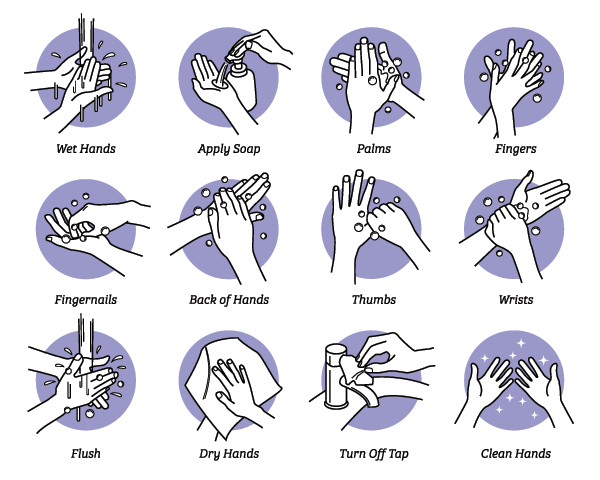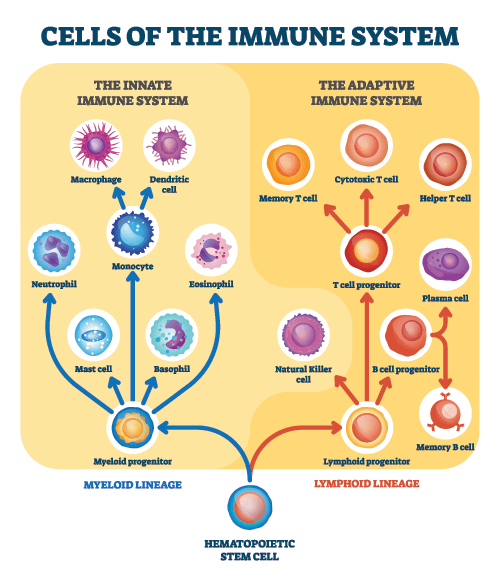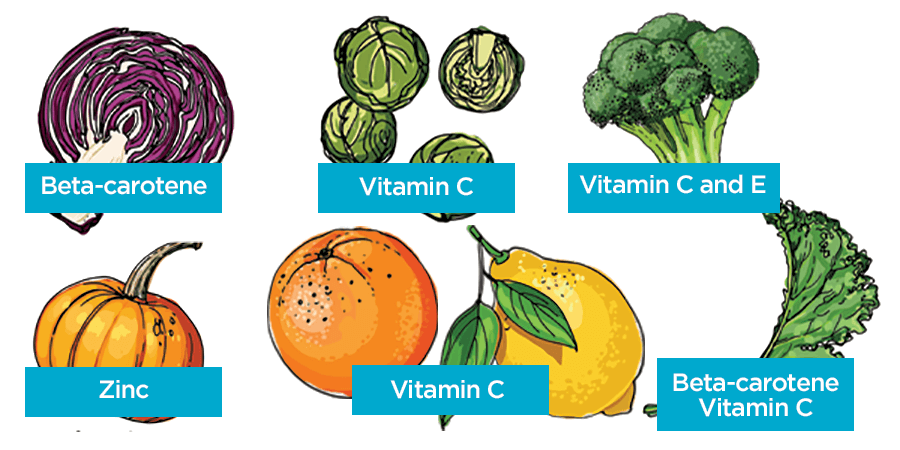During flu season interest in products and solutions that strengthen the immune system naturally spike but most of us already have access to everything we need to ensure optimal immune function. Thankfully, there are many lifestyle changes you can make to prepare your body for the flu season and other outbreaks.
While it doesn't make sense to speak about 'boosting' your immune system, there are things you can do to make sure it works optimally. A 'boosted' immune system would be an overactive immune system (which is not a good thing – think autoimmune disease) but at the same time an underactive immune system is not fit to fight off infections.
Other than not getting sick in the first place, losing weight and working on your overall health is the best way to a balanced immune system.
There are plenty of myths about the immune system but in this guide, we're going through what we know and don't know about improving immune response. If you’d like to know more about a certain topic, simply click the link in that section of the guide!
How to avoid getting sick
Bacteria and virus clinging to our hands is the number one reason we get sick. According to one study, we touch our faces as often as 23 times per hour, so it's easy to see how we get infected with different diseases. Washing your hands often is perhaps the best thing you can do to avoid illness.
Getting the flu shot is another good way to avoid getting sick – and making sure people around you don't get sick. While you may not experience a flu as a world-ending event, someone else who you infect may have a harder time of it. Also – if you're not feeling well, stay home to take care of your own health and the health of others.

What is the immune system?
Simply put, the immune system consists of an innate and an adaptive part. The innate part can respond in a general way by increasing inflammation in an infected body part in an attempt to flush out any foreign substances.
The adaptive part targets pathogens specifically, scans and remembers their genetic makeup, then kills them off if it can. This means that if you catch a virus and recover from it, your body knows how to deal with it in the future, thereby giving you immunity. You’ll either not get sick from that virus again or you’ll experience far milder symptoms while your immune system does its job.
Vaccines exploit the innate system by exposing the body to a (usually) dead version of a certain virus, which the immune system then remembers and fights off.

Does obesity affect the immune system?
There is now plenty of evidence that having a high body fat mass, and the health complications that come with obesity, has a big impact on how well your immune system works. This is partly due to the level of inflammation in the body, as being overweight increases the risk of having chronic low-grade inflammation in your fat tissue.
Constant inflammation isn't good for you. While inflammation is a normal and healthy immune response to a pathogen or an injury, constant inflammation is like an alarm bell going off all the time, and it wears down your body's ability to respond to actual infections.
If you are overweight and worried about getting sick, one of the best things you can do is to work towards losing weight and maintaining a healthy lifestyle.
Learn more: The CSIRO Total Wellbeing Diet is a scientifically formulated weight loss plan that has helped more than 500,000 Australians lose weight.
Feed your immune system
There are foods (and drinks!) that are bad for your immune system and foods that will help you keep in good health. Generally, a balanced diet rich in fruit and vegetables is one that is good for your immune system.

Vitamins for healthy immune system
The specific nutrients that support the immune system are:
Beta-Carotene which is found in carrots, sweet potatoes, and green leafy vegetables like kale, spinach and cabbage.
Vitamin C which is commonly found in citrus fruits like oranges, lemons and grapefruit, but also in many vegetables like broccoli, brussels sprouts and kale.
Vitamin E which is most easily found in seeds, nuts, spinach and broccoli.
Vitamin D which isn’t found in many foods (other than those fortified with vitamin D) but which your body produces when exposed to sunlight.
Zinc which is found in nuts, pumpkin and sesame seeds, beans and lentils.
Digestible fibre which you can find in whole grain products, beans, lentils, fruits and vegetables.
Speaking of digestible fibre – did you know that 70-80% your immune cells live in the gut? Your gut is the central hub for the immune system, and the better your gut health, the better your immune system will be at picking out pathogens both in the gut and in other parts of your body.
Learn more: The CSIRO Total Wellbeing Diet offers a Gut Health program that is designed to both fix your gut health and help you lose weight.
Including fresh fruit and vegetables in all your meals is a good way to make sure you get all the minerals and vitamins that you need to keep healthy.
On the bad food side, unfortunately, are high sugar foods, processed foods, and alcohol. Both alcohol and sugar raise the levels of inflammation in the body, making it harder for the immune system to do its work properly. Alcohol may also kill off white blood cells which you need to detect and fight off infection – and a single evening of heavy drinking is enough to do lasting damage.
Do vitamin supplements boost immune systems?
Ideally, we'd just pop multivitamins to ensure that our immune system works the way it's supposed to, but decades of research has found no evidence that vitamin supplements do anything for otherwise healthy people.
Getting your vitamins, minerals and antioxidants from fresh food beats supplements because in food, these compounds are partnered with hundreds of other micronutrients which are also good for you.
How exercise supports the immune system
The more often you exercise, the better your immune system works. During and after exercise, your blood is flooded with white blood cells that circulate around your body looking for pathogens and killing them off. Exercise reduces inflammation in your body over time, which by now you know is a good thing for the immune system.
People who exercise regularly experience fewer sick days and suffer milder symptoms of disease than people who are not as active. Some exercise is always better than none – even when you’re not feeling well (up to a certain point!).
An indirect benefit of being active is that you sleep better, which also promotes a healthier immune system. Again, this partly has to do with inflammation as good quality sleep reduces the level of inflammation in the body.
Your immune system and your need for sleep are both regulated by the same circadian rhythms and when these are interrupted your health suffers. The best thing you can do is to maintain a regular sleep routine and a great way to ensure you feel tired enough when it’s time for bed is to exercise regularly.
